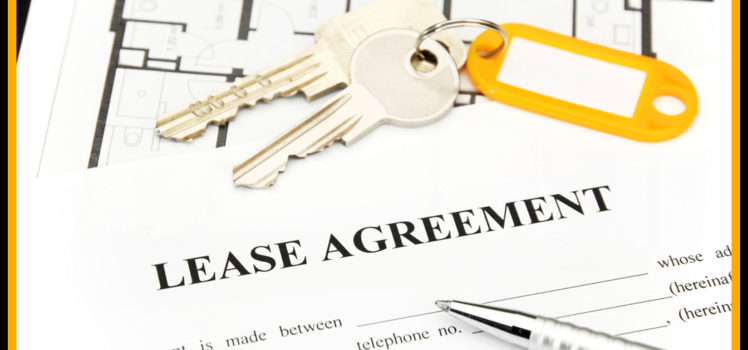In business one of the biggest decisions, you’ll make is choosing premises to work out of. Many will have to enter a lease agreement for the rental of property to carry out their businesses in. Murphy’s law states that when things can go wrong they will go wrong. As such there are things that require your attention when entering into a lease agreement for your business.
Lease agreements are tricky documents because they do not have a standard form and can differ wildly from one to the next. The only requirement is that the lease is in writing and not in the form of a verbal agreement. This is not to say verbal agreements are not binding. The caveat subscriptor rule means that any document you sign it is assumed you have read understood and agreed to. This applies in Zimbabwe.
Renewal clause/conditions
Lease durations are down to the agreement between the parties. You should have a firm understanding of what the lease says about your rights and responsibilities when it comes to leasing renewal or extension.
Security deposit rules
It’s commonplace to pay a security deposit as part of upfront fees in a lease agreement. Going forward it’s important to have the rules around that deposit clearly stated. For example, a lessor may be well within their rights to deduct amounts for bringing the property back to its initial condition, this can include painting. As such the tenant is not entitled to the return of the full deposit automatically.
Utilities
With regards to utilities what you should check for is the existence of debt on the utility accounts. ZESA made an arrangement where prepaid customers with debts outstanding (and there are many) would have part of all prepaid purchases directed towards the debt. As a new tenant, the pre-existing debt should not fall under your responsibility.
Outdoor Spaces
In the event that it is shared property with other tenants, this is very important. The ideal arrangement is for the lessor to take care of all arrangements for maintenance with the individual’s lessees paying a contribution towards the cost of maintenance. Some cases the lessees may be required to come together and make arrangements. Whichever the case knowing where you stand beforehand is important.
Subletting
Subletting is a tricky thing in business but not strictly prohibited or frowned upon. However, it’s important to know how subletting can be done. Even if you have no plans to sublet initially, that is the best time to gauge the true feelings of the lessor on the issue.
Renovations/bringing to condition
Some enterprises have special needs in terms of fixtures and fittings and you may need to change certain things to bring the premises up to condition for your operations. You want to make sure you understand beforehand your rights and responsibilities in this regard because they may extend to what you need to do when you leave the premises as well.
Termination
Knowing how, when and why you are allowed to terminate the lease and what that entails is essential. Also knowing how, when and why the lessor can terminate the lease is important. The process thereafter too should be carefully looked at. It’s not one of the things you want to look at as you enter premises but it is prudent to do so.
Late Fees
You don’t plan to ever be late with rent but it may happen so ignoring it isn’t going to help. What you need to know is what is acceptable. Of course, having a good relationship with your lessor will help greatly in this regard going forward but knowing whether there’s a charge associated with this or not is important.
Condition of things
Documenting the condition of things when you take possession of the premises is important and it’s commonplace to find many lessors omit these details. The easiest way to protect yourself is to take pictures of all things upon entering and send an email to the lessor on the date of occupation, this creates a paper trail of sorts.
Please be reminded that this does not constitute legal advice and you should consult with a legal practitioner for your specific circumstances.








